Politics
20 years since Wales said ‘yes’
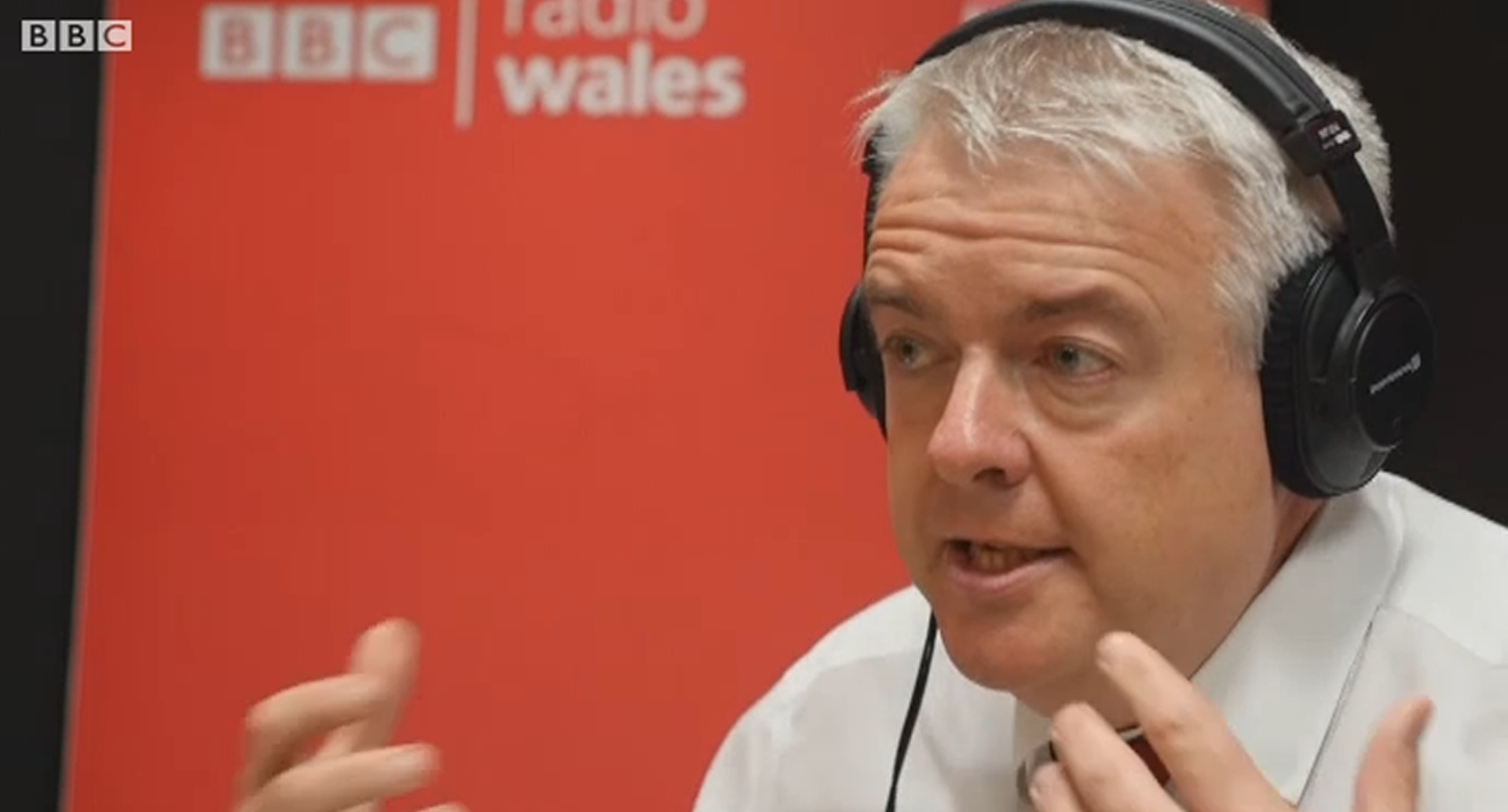
TWO decades since Wales said ‘yes’ in the referendum to create the National Assembly, a group of young people for whom the institution has always been a feature of their lives, visited the Senedd on Monday (Sept 18) and met the Llywydd, Elin Jones AM.
Representatives of the ‘devolution generation’ took part in a Question and Answer session with the presiding officer and were given a tour of the National Assembly building in Cardiff Bay.
SUPPORT FOR DEVOLUTION GROWS
In 1997 Wales went to the polls and voted to establish the National Assembly for Wales.
Since then the Assembly gained primary law-making powers through the Government of Wales Act 2006 before Wales voted again in 2011 to unlock further powers from Westminster.
Wales Acts in 2014 and 2017 have seen the Assembly’s responsibilities widen further to include tax-raising powers for the first time in almost 800 years.
Landmark laws passed by the Assembly include adopting a system of presumed consent for organ donation and minimum staffing levels on hospital wards, while a petition calling for a ban on single-use carrier bags led to a 5p charge which has greatly reduced their use and been adopted across the UK.
To mark the occasion around 70 young people took part in a question and answer session with the Llywydd of the National Assembly, Elin Jones AM, where topics including voting age, a youth parliament and the future of the Assembly were discussed.
Elin Jones AM said: “Support for devolution and the National Assembly has grown significantly in Wales. In 1997 the vote in favour was very close, but a BBC Wales St David’s Day poll in 2017 had 73% of people either saying the Assembly’s powers should be increased or were sufficient.
“Our priority for the future is to ensure that we have a parliament that is well-equipped to represent the interests of Wales and its people, make laws for Wales and hold the Welsh Government to account; a parliament that is an equal of its counterparts across the UK.”
How Assembly legislation has changed Wales and the UK:
- Wales was the first UK nation to restrict smoking in enclosed public places
- Wales was the first UK nation to have a national conversation about changing organ donation law and to pass legislation bringing in the soft-opt-out system. Now Scotland and England are looking to follow
- The Nurse Staffing Act, introduced by Kirsty Williams AM was the first legislation of its kind in the UK and Europe, requiring the NHS to take steps to calculate and maintain nurse staffing levels in adult acute medical and surgical inpatient wards
- A member-proposed measure by Ann Jones AM, now Deputy Presiding Officer, required all new homes built in Wales to be fitted with a sprinkler system
- The 5p charge on single use carrier bags was originally proposed via the Petitions Committee process and went on to become legislation through the Assembly. Wales went on to become the first country in the UK to introduce a charge on single use carrier bags in October 2011. Others have followed
- At a time when public confidence in politicians was at its lowest, the Assembly took the radical step in 2008 to review its arrangements for determining Members’ pay and allowances. The independent Remuneration Board was established in 2010 to determine the remuneration and allowances for Members of the National Assembly for Wales
- In 2013 the Assembly passed a law that cemented both English and Welsh as the Assembly’s official languages placing a statutory duty on itself to provide services to Members and the public in the official language of their choice
20 YEARS AND 20 QUOTES
“Devolution is about harnessing the power of community – the diverse community that is the United Kingdom, and the national communities that through devolution can take their futures in their own hands.”
A quote from Tony Blair who in 1997 led Labour back to power for the first time since 1979 in a landslide victory. The Labour manifesto included a commitment to holding a referendum on the creation of a Welsh Assembly.
“There are some variations across social groups in Wales. Women clearly support a Welsh Assembly – by 37 to 29 – while men oppose one by 43 to 38.
“There is strong majority support for devolution among those aged 18 to 34, while a majority of those voters aged over 65 oppose an assembly.”
An extract from the results of a Guardian/ICM poll taken a week before the referendum vote.
“Good morning, and it is a very good morning in Wales.”
This is how Ron Davies, Secretary of State for Wales in 1997 and leader of the Yes campaign started his speech when the result was announced.
“When you win a national campaign by less than seven thousand votes it makes every last leaflet, every last foot-step, every last door knocked, worthwhile.”
Leighton Andrews, former Assembly Member and Welsh Government Minister, reflects on the Yes Campaign in a recent blog for the IWA. 50.3% of those who voted in the referendum supported devolution – a narrow majority in favour of 6,721 votes.
Following the referendum, the UK Parliament passed the Government of Wales Act 1998. The Act established the National Assembly as a corporate body – with the executive (the Government) and the legislature (the Assembly) operating as one. The first Assembly elections were then held on 6 May, 1999.
“The people of Anglesey in the slate quarries of Caernarfonshire used to be known as Pobol y Medra, because their answer to the question, ‘Can you do this?’ was ‘Medra’—‘I can. That must be our message throughout Wales. Let the whole of Wales become Pobol y Medra.”
Alun Michael, having just become the First Secretary of Wales on 12 May 1999.
“It is now the only legislature in the world that is perfectly balanced between men and women. We should note that. It is a message that should ring around the world.”
Rhodri Morgan, then First Secretary, following the 2003 Assembly elections when a world record was set by the Assembly through becoming the first legislative body with equal numbers of men and women.
“We popped in to admire the architecture and have a look around but were pleased to find that we could enter the public gallery and watch a live debate taking place. It was really interesting and enhanced our understanding of the place and the people working there. Definitely worth a visit.”
A review of the Senedd on TripAdvisor. The Senedd became the home of the National Assembly for Wales in 2006 and since then has welcomed more than one million visitors.
“We are moving into a new era, with new powers, and we have a wonderful opportunity to attempt to take the constitution of Wales forward in a new stage of devolution.”
Dafydd Elis-Thomas AM, then Presiding Officer, speaking in 2007 following the legal separation of the National Assembly for Wales and the Welsh Government as the Government of Wales Act (2006) came into force.
The 2006 Act also gave a way for the National Assembly to gain powers to make laws without the need for the UK Parliament’s approval, through a yes vote in a referendum.
“The rest of the world can now sit up and take notice of the fact that our small nation, here on the western edge of the continent of Europe, has demonstrated pride in who we are, and what we all stand for.”
Ieuan Wyn Jones, then Deputy First Minister and leader of Plaid Cymru, following the 2011 referendum where the Welsh electorate voted in favour of further powers to the National Assembly.
“Just fifteen years ago, it would have been unthinkable for politicians, elected by Welsh voters, to draft such legislation and put it on the statute books within such a short space of time.”
Dame Rosemary Butler, then Presiding Officer, comments on the first Assembly act to become law following the new powers granted by the 2011 referendum. The law, introduced by the National Assembly’s Commission, officially recognised both the Welsh and English languages as the official languages of Assembly proceedings.
“Good laws need to be formed through contributions and opinions from the people of Wales if they are to be truly democratic, transparent and accountable.”
David Melding AM, then Deputy Presiding Officer and Chair of the Constitutional and Legislative Affairs Committee. Just like Select Committees in Westminster, Assembly Committees are an integral aspect of how the Assembly holds the Welsh Government to account.
“An impressive feature of this Chamber has always been your commitment to accountability and transparency through electronic communication and the broadcasting of your proceedings. I know that the way you have addressed this commitment has stimulated interest in other and older parliaments.”
HM The Queen Elizabeth II commenting on the technology of the Siambr during one of the five official opening ceremonies. The Siambr is a fully electronic debating chamber. Every Member has an individual computer terminal, to enable them to research subjects for debate and to undertake work when not being called to speak. They also have access to headphones to amplify the sound in the Siambr or to use the simultaneous interpretation services provided.
“It’s modern democracy. There aren’t traditions, we’re not bound by anything that’s gone before but we’re trying to create the right processes that suit a modern democracy – getting the business done, making things happen.”
Dame Claire Clancy, who was the Clerk and Chief Executive of the Assembly from 2007 to 2017.
“It is vitally important that people with autism are able to participate fully in civic life and in their communities. Training and awareness can make a huge difference and I hope that the Assembly’s example inspires more public buildings and other organisations in Wales to work with us to become more autism friendly.”
Mark Lever, Chief Executive for the National Autistic Society, on the Assembly’s work to make its work and buildings autism-friendly.
“We’ve got to be world class and we mustn’t settle for anything else.”
Peter Hain, a Welsh Officer Minister at the time of the 1997 referendum, comments on the progress of Welsh devolution in 2014.
“You don’t come out the one time, you have to do it over and over again because there is still that assumption you are straight. Like somebody once said about devolution, coming out is more of a process than an event.”
Hannah Blythyn AM is the first openly lesbian woman to be elected to the National Assembly for Wales. The 2016 Assembly election saw also saw two gay men elected – Jeremy Miles AM and Adam Price AM.
As an employer, the Assembly has been included in the top five of Stonewall’s UK-wide LGBT Workplace Equality Index for the last three years.
“Now is the time for Wales to unite and to think clearly about our future. Even before yesterday’s vote I said that no one party had the monopoly on good ideas, and now more than ever, we must rely on the abilities of all.”
Carwyn Jones AM, the current First Minister, following the result of the Brexit referendum in June 2016.
“I think young people should be involved in democracy, it will make so much difference to our country. We need to be progressive in our society, we need to make changes for the better – we can’t stay stuck in the past.”
Tooba Naqvi talking about why she believes there should be a Youth Parliament for Wales that works alongside the National Assembly.
Youth engagement has been a priority for the Assembly with 30,000 young people reached through school visits, outreach programmes and other activities.
“We are entering a period when fundamental changes will be made to the constitutional arrangements of the UK, the place of the devolved nations within it, and the ability of the Assembly to deliver for the people of Wales. As that process unfolds, I am determined to demonstrate and secure the Assembly’s role as a strong, effective Parliament for Wales.”
The current Llywydd, Elin Jones AM reacting to the UK Government triggering Article 50.
Let ‘difficult’ become simple, and ‘challenging’ become fun; and let us each day repeat the maxim: that ‘two men will come together sooner than two mountains.
An extract from ‘Y tŷ hwn’ (‘This House’) a poem by Ifor Ap Glyn commissioned by the National Assembly for Wales for the Official Opening of the Fifth Assembly.
News
Kurtz criticises Tufnell over GP pressures at Argyle Medical Centre
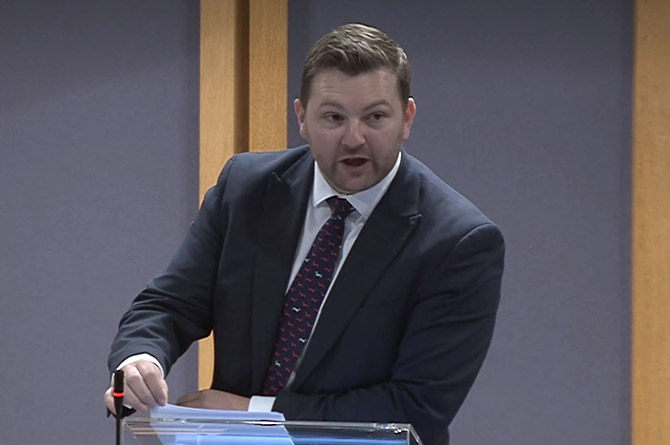
Local MS says Welsh Government decisions are root cause of crisis
CONSERVATIVE Senedd Member Sam Kurtz has criticised Labour MP Henry Tufnell after the MP suggested GP practice management should be held accountable for patient dissatisfaction at Pembroke Dock’s Argyle Medical Centre.
Patients registered at the surgery have for years raised concerns about access to appointments, particularly difficulties securing same-day consultations and long waits to get through on the phone.
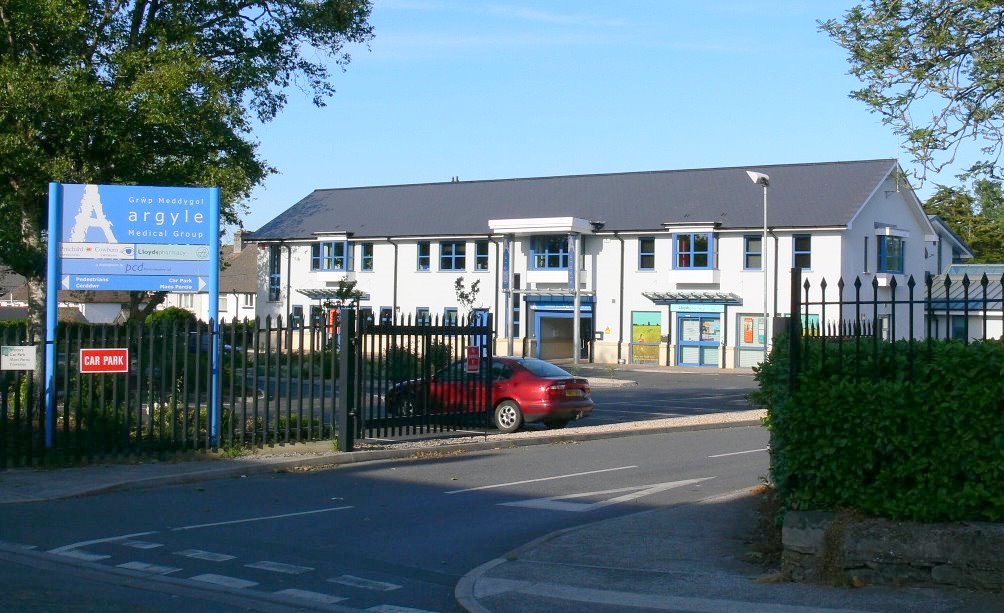
Speaking to BBC Wales, Mr Tufnell said he had discussed the situation with the Health Board’s Chief Executive and claimed the senior official “feels powerless” to intervene.
He said: “I’ve spoken to the Chief Executive of the Health Board, and he feels powerless to do anything about it. We need to come together and hold the management of these surgeries to account; there must be transparency about what they’re doing, and, fundamentally, we need reform in the system.”

Mr Kurtz responded angrily, arguing that responsibility for reforming NHS Wales rests with the Welsh Government, not GP surgeries or frontline staff.
He said: “I don’t think it’s very helpful to point the finger at the surgery and suggest the fault lies with them when staff are working incredibly hard.
“If he wants to point the finger, it should be at his Labour colleagues in Cardiff Bay, who have continuously piled pressure onto GP practices by imposing contracts that are extremely difficult to deliver. That is why surgeries like Argyle are under such strain.”
Mr Kurtz later told The Pembrokeshire Herald that the problems faced by GP practices across Pembrokeshire were the result of long-term policy failures rather than poor local management.
“As someone born and raised in Pembrokeshire, I have seen first-hand the damage caused by the Welsh Labour Government’s mismanagement of our local NHS, despite the dedication and professionalism of frontline staff who continue to do their very best in increasingly challenging conditions,” he said.
“Anyone seeking to place the blame on NHS staff should back off. The fault does not lie with them. Real improvement will only come through properly supporting GP practices, listening to their concerns and working with them rather than against them.”
Argyle Medical Group is the second-largest GP practice in Wales, serving around 25,000 registered patients with nine GPs — an average of approximately 2,800 patients per doctor. In 2021, the practice had the equivalent of 10.75 full-time GPs and was actively seeking to recruit more.
However, ongoing recruitment difficulties forced Argyle to withdraw from its contract at St Clement’s Surgery in Neyland and reduce hours at St Oswald’s Surgery in Pembroke. Following the Neyland closure, patients were transferred to the Neyland and Johnston Medical Practice, which later handed back its GP contract after retirements and further recruitment problems. Those patients are now treated by salaried and locum GPs employed by the Health Board.
Similar pressures are being felt across Pembrokeshire, from Tenby in the south-east to St Davids in the north-west. While Wales does not face “GP deserts” on the same scale as the well-documented shortage of NHS dentists, reduced access to general practice has contributed to more patients attending hospital for conditions once routinely dealt with by GPs. This has placed additional strain on hospital services and staff.
In 2018, the Welsh Government pledged to recruit 1,000 additional GPs into NHS Wales. While overall GP headcount has risen, the number of full-time GPs has continued to fall. Many newer recruits work part-time, as locums, or on limited contracts, meaning fewer doctors are available in practice on a day-to-day basis.
Newly qualified GPs have also tended to favour larger urban centres, particularly along the M4 corridor and in north-east Wales, where professional support and career opportunities are greater. Critics argue that Welsh Government recruitment and retention strategies have failed to address persistent shortages in rural and coastal communities.
There are also ongoing shortfalls in independent prescribing pharmacists and community nursing staff, limiting efforts to relieve pressure on GP surgeries.
Mr Kurtz said: “The foundation of NHS care — with GPs as the first point of contact — has buckled. Blaming GP staff is a distraction. The issues are structural, long-term and political, and ultimately the buck stops in Cardiff Bay.”
Health
NHS Wales spends more than £15.5m on agency radiographers as pressures grow
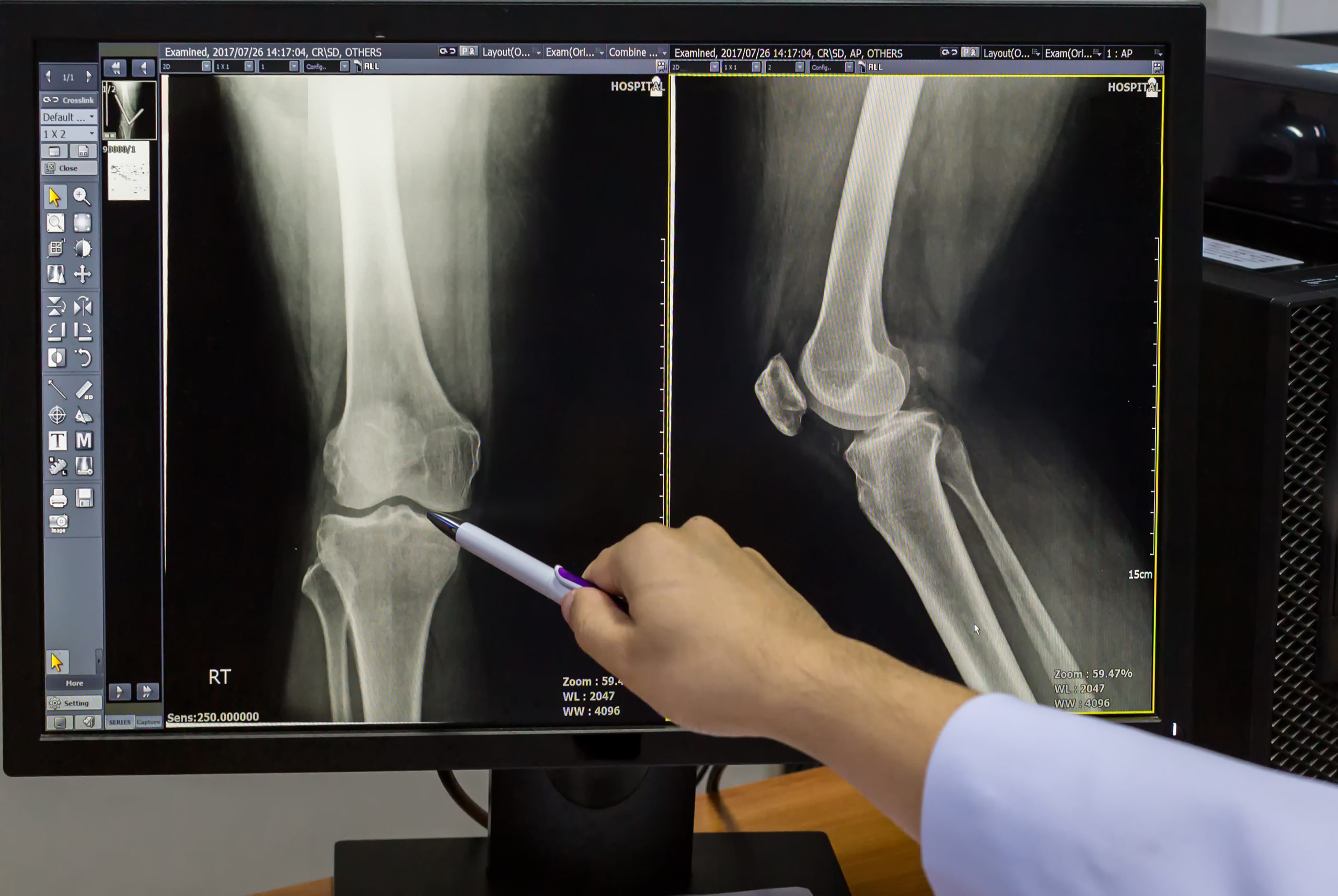
NHS WALES has spent more than £15.5 million on agency radiography staff over the past five years, as mounting pressure on diagnostic imaging services raises concerns about long-term workforce sustainability.
Figures obtained by the Welsh Liberal Democrats through Freedom of Information requests show that spending on temporary radiographers almost doubled between 2020/21 and 2023/24, despite relatively low headline vacancy rates across Welsh health boards.
Radiographers carry out X-rays, CT, MRI and ultrasound scans, which are essential to emergency care, cancer diagnosis, trauma treatment and elective surgery. Delays or shortages in imaging services can have a knock-on effect across patient pathways, slowing diagnosis and treatment.
The data also highlights an ageing workforce. More than a quarter of radiographers in Wales are aged over 50, with more than one in ten aged 55 or above. In some health boards, a significantly higher proportion of staff are approaching retirement age, raising concerns that experienced radiographers could leave faster than they can be replaced.
Betsi Cadwaladr University Health Board recorded the highest agency spend, at more than £8.1m over the period covered by the FOI requests. Other health boards also reported growing reliance on temporary staff to maintain services, particularly where specialist skills are required.
While official vacancy figures remain comparatively low, professional bodies have previously warned that vacancy data does not always reflect pressure on services, as posts can be held open or covered through overtime and agency staff rather than filled permanently.
Diagnostic imaging demand has increased steadily in recent years, driven by an ageing population, advances in medical imaging technology, and rising referrals linked to cancer and long-term conditions.
Commenting on the findings, Welsh Liberal Democrat Leader Jane Dodds MS said:
“Radiographers are absolutely vital to the NHS. From diagnosing cancer to treating people in A&E, the vast majority of patient journeys depend on timely access to scans.
“These figures show a system increasingly relying on expensive agency staff while failing to plan properly for the future workforce. That is not fair on patients, and it is not fair on staff who are already under huge pressure.
“The Welsh Labour Government must take urgent action to improve recruitment and retention, support experienced staff to stay in the workforce for longer, and ensure NHS Wales has a sustainable radiography workforce fit for the future.”
The Welsh Government has previously said it is working with health boards to improve recruitment and retention across NHS Wales, including expanding training places and supporting flexible working arrangements to help retain experienced staff. Ministers have also pointed to record numbers of staff working in the NHS overall, while acknowledging ongoing challenges in hard-to-recruit specialties.
However, opposition parties and professional bodies continue to warn that without long-term workforce planning, reliance on agency staff could increase further, adding to costs and pressure on already stretched diagnostic services.
Politics
Ajax armoured vehicle trial paused again as MP warns jobs must be protected
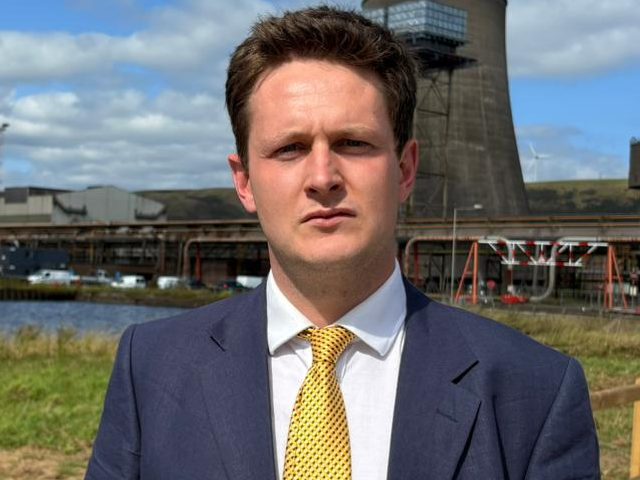
A FRESH pause to trials of the Ajax armoured vehicle programme has prompted renewed calls for workers’ jobs in Wales to be safeguarded.
The trial has been halted after another soldier reportedly fell ill during testing, adding to a series of delays and technical problems that have dogged the long-running Ministry of Defence project.
Welsh Liberal Democrat Westminster spokesperson David Chadwick MP said the repeated failures raised serious questions about accountability and cost.
He warned ministers must ensure taxpayers are not left footing the bill if the programme ultimately collapses, arguing that responsibility should rest with defence contractor General Dynamics.
“With the Ajax programme beset by repeated failures and significant delays, ministers need to confirm that taxpayers will not be left to bear the cost of these failures,” he said.
“If the project does end up being scrapped, the Government must ensure that the 400 workers currently employed on the programme in Merthyr Tydfil will receive full support.”
Mr Chadwick added that the Merthyr site should be prioritised for future defence and military development work if Ajax does not proceed, to protect skilled jobs and investment in the area.
The Ajax programme has faced years of scrutiny over safety concerns, excessive noise and vibration, and mounting delays, with the latest pause reigniting pressure on the Government to clarify the project’s future.
-

 Crime1 day ago
Crime1 day agoMilford Haven man jailed after drunken attack on partner and police officers
-

 News4 days ago
News4 days agoDyfed-Powys Police launch major investigation after triple fatal crash
-

 Crime1 day ago
Crime1 day agoTeenager charged following rape allegation at Saundersfoot nightclub
-

 Crime2 days ago
Crime2 days agoMan charged with months of coercive control and assaults
-

 Crime3 days ago
Crime3 days agoMan sent to Crown Court over historic indecent assault allegations
-

 Crime5 days ago
Crime5 days agoMan spared jail after baseball bat incident in Milford Haven
-

 Crime3 days ago
Crime3 days agoMilford Haven man admits multiple offences after A477 incident
-

 Crime2 days ago
Crime2 days agoWoman ‘terrified in own home’ after ex breaches court order





















